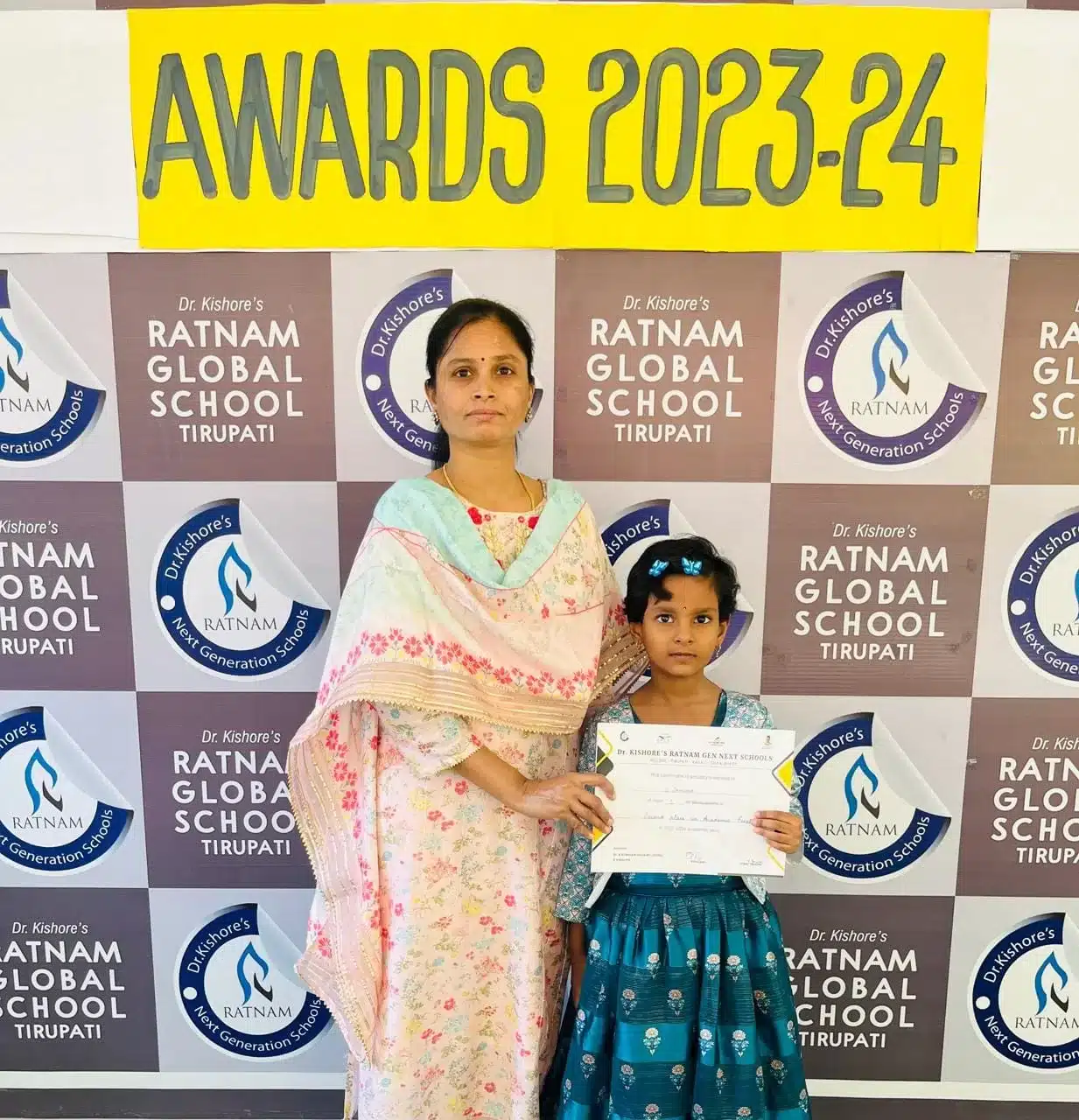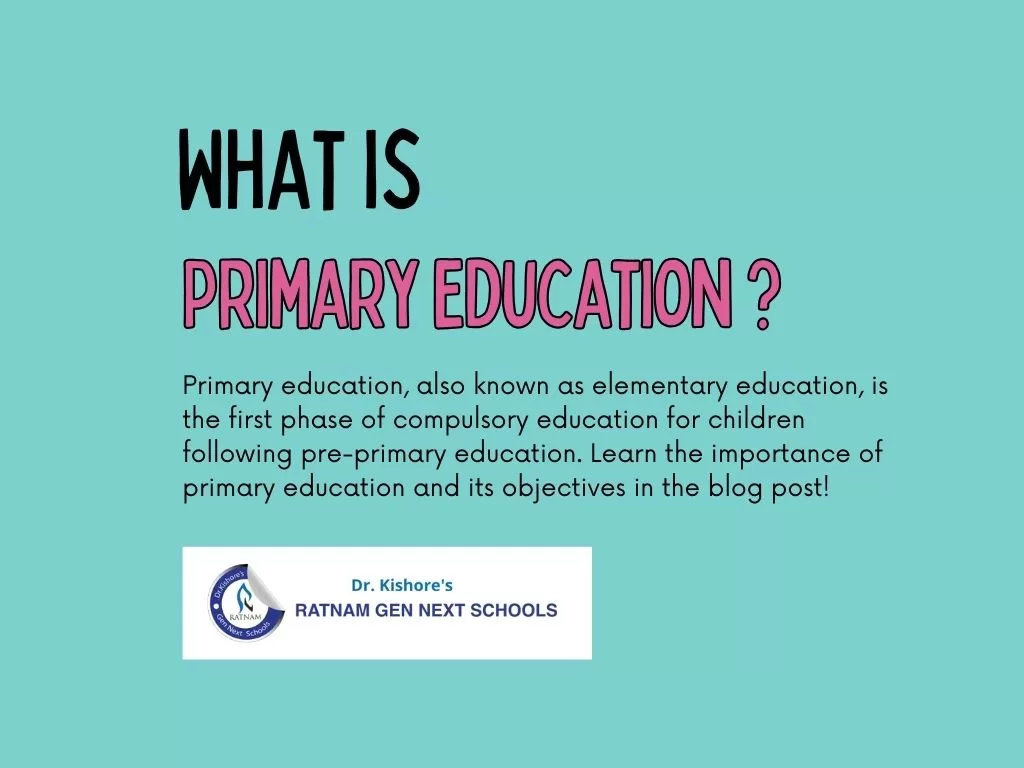Primary education is the first step in the formal education system, setting the foundation for lifelong learning and development. It usually covers the initial stages of a child’s education, typically from ages 5 to 11. During these formative years, children acquire basic skills in reading, writing, arithmetic, and develop social skills that are crucial for their future success.
What is Primary Education?
Primary education, also known as elementary education, is the first phase of compulsory education for children. It usually starts at age five or six and continues until age eleven or twelve, depending on the country. This level of education aims to provide children with basic literacy and numeracy skills, along with a broad understanding of various subjects such as science, social studies, and the arts.
Dr. Kishore’s Ratnam Schools in Nellore, Tirupati, Kavali, and Srikalahasti understand how important these early years are. We work hard to create a caring and enriching environment for young children. Our curriculum is engaging and varied, catering to the developmental needs of young children. Teachers use a mix of methods, including storytelling, hands-on activities, and interactive lessons to make learning enjoyable and effective. This way, students are not only academically prepared but also develop the social skills needed for future success.
Also Read: Best Hobbies to Keep Your Mind Sharp
Importance of Primary Education
Primary education is crucial as it sets the foundation for lifelong learning and development. Here’s how it impacts children’s lives:
1. Foundational Skills for Lifelong Success
Primary education lays the groundwork for all future learning. It equips children with the essential skills of reading, writing, and arithmetic, which are necessary for understanding more complex subjects later in their academic journey.
2. Learning to Share and Manage Emotions
In primary school, children learn to interact with peers and adults outside their family circle. This interaction helps them develop important social skills such as cooperation, sharing, and conflict resolution. Additionally, primary education fosters emotional development by helping children understand and manage their emotions.
3. Helping Kids Think and Grow
During the primary years, children experience significant cognitive development. They learn to think critically, solve problems, and understand abstract concepts. The structured environment of primary education encourages curiosity and stimulates intellectual growth.
4. Giving Every Child a Fair Chance to Succeed
Primary education plays a crucial role in promoting equality. By providing every child with access to education, regardless of their background, primary schools help bridge the gap between different socio-economic groups. This equal access ensures that all children have the opportunity to succeed.
5. Learning to Stay Healthy in Primary Grades
Primary schools often include lessons on health and hygiene, teaching children about the importance of a balanced diet, regular exercise, and good personal hygiene practices. These lessons contribute to the overall well-being of children and promote healthy habits that can last a lifetime.
Also Read: What is Pre-Primary Education, Importance, and Objectives

Objectives of Primary Education
Primary education aims to lay a strong foundation for children’s overall development and future success. Here are the key objectives:
1. Learning About Cultural Awareness and Appreciation
Primary education helps children appreciate and respect different cultures and traditions. Through subjects like history, geography, and social studies, children learn about the world around them and develop an understanding of cultural diversity.
2. Preparation for Secondary Education
Primary education prepares children for the transition to secondary education. By the end of their primary schooling, children should have the knowledge, skills, and confidence needed to succeed in the next phase of their education.
3. Helping Kids Learn Essential Skills for Primary Education
The primary objective of primary education is to ensure that all children achieve basic literacy and numeracy skills. This includes the ability to read and write simple texts, understand basic arithmetic operations, and apply these skills in everyday situations.
4. Helping Kids Succeed with Complete Growth in School
Primary education aims to promote the holistic development of children. This means nurturing their intellectual, physical, emotional, and social growth. Schools provide a balanced curriculum that includes academic subjects, physical education, and creative arts to achieve this goal.
5. Moral and Ethical Values
Instilling moral and ethical values is an essential objective of primary education. Schools teach children about honesty, kindness, respect, and responsibility. These values help shape their character and guide their behavior in society.
Also Read: Curiosity Activities for Students
Challenges in Primary Education
Despite its importance, primary education faces several challenges. In many parts of the world, access to quality education remains a significant issue. Factors such as poverty, lack of infrastructure, and insufficient teaching resources can hinder children’s learning experiences. Additionally, some educational systems struggle with outdated curricula that do not meet the needs of modern students.
Also Read: Best Qualities of a Good Student
Conclusion
Primary education is a crucial phase in a child’s development. It provides the foundation for lifelong learning, fosters social and emotional growth, and promotes equality. By achieving the objectives of literacy, numeracy, holistic development, critical thinking, cultural awareness, and moral values, primary education prepares children for future success. However, to maximize its impact, it is essential to address the challenges facing primary education and ensure that all children have access to quality learning opportunities.


